PRINCETON, NJ -- Americans' perceptions of the most urgent health problem facing the United States focus on systemic factors such as access to healthcare and the cost of it rather than specific medical conditions.
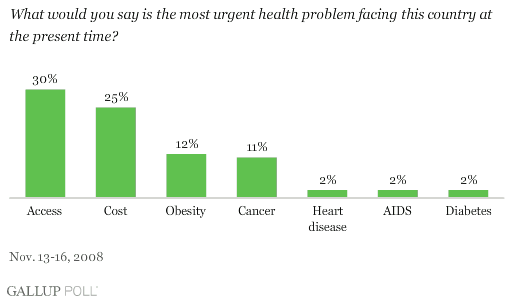
These results are based on Gallup's annual Health and Healthcare Poll, conducted Nov. 13-16. Each year, Gallup asks Americans to name, without prompting, the "most urgent health problem facing this country at the present time."
For the last seven years -- and eight of the last nine -- either healthcare cost or access has topped the list, and these two issues have been first or second on the list for the last six years. Only in 2001, when the anthrax scare pushed bioterrorism to the top of the list, did some other health concern trump either cost or access as the most urgent health concern.
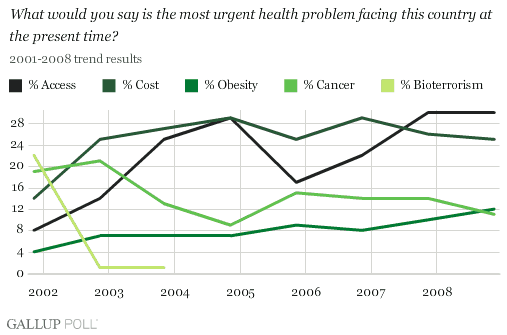
Prior to this decade, the public was most likely to mention a specific medical condition -- AIDS -- as the greatest health concern.
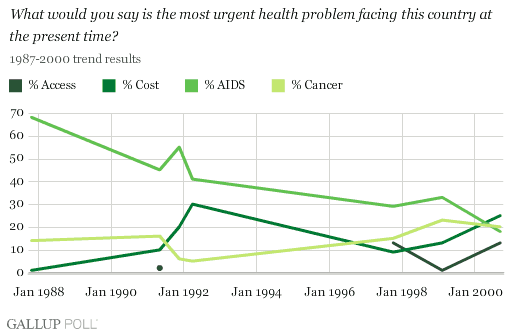
After cost and access, obesity and cancer are the next most pressing health issues in the public's mind this year. Obesity has been more commonly mentioned in recent years, and the 12% who mention it in the current survey is the highest Gallup has found to date.
Concern about cancer has diminished slightly in recent years, since a high of 23% mentioned it in 1999.
But that decline pales in comparison to the steep drop in concern about AIDS, which had been the top concern from 1987 to 1999, but has registered in the single digits since 2001 and is mentioned by just 2% of Americans this year.
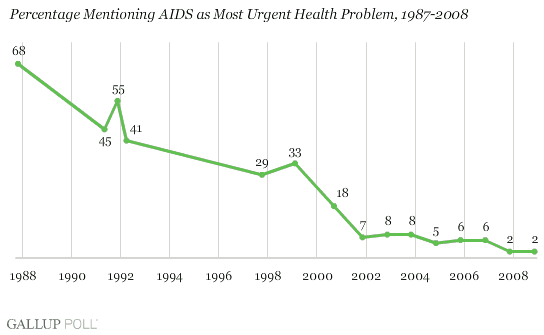
Most Urgent Health Problem by Subgroup
There are not many notable differences among population subgroups in perceptions of the most urgent health problem, as cost and access are the top two concerns for each major demographic and attitudinal group.
However, the relative rank-ordering of the two major health concerns varies by political ideology. Specifically, self-identified liberals are about twice as likely to mention access to healthcare as to mention cost, while moderates and conservatives both mention cost and access about equally. (There are similar differences by political party.)
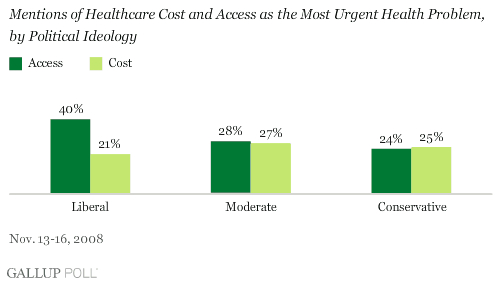
There is also a significant gender difference in concerns about obesity -- men (17%) are twice as likely as women (8%) to cite obesity as the nation's most pressing health problem.
Survey Methods
Results are based on telephone interviews with 1,009 national adults, aged 18 and older, conducted Nov. 13-16, 2008. For results based on the total sample of national adults, one can say with 95% confidence that the maximum margin of sampling error is ±3 percentage points.
Interviews are conducted with respondents on land-line telephones (for respondents with a land-line telephone) and cellular phones (for respondents who are cell-phone only).
In addition to sampling error, question wording and practical difficulties in conducting surveys can introduce error or bias into the findings of public opinion polls.
